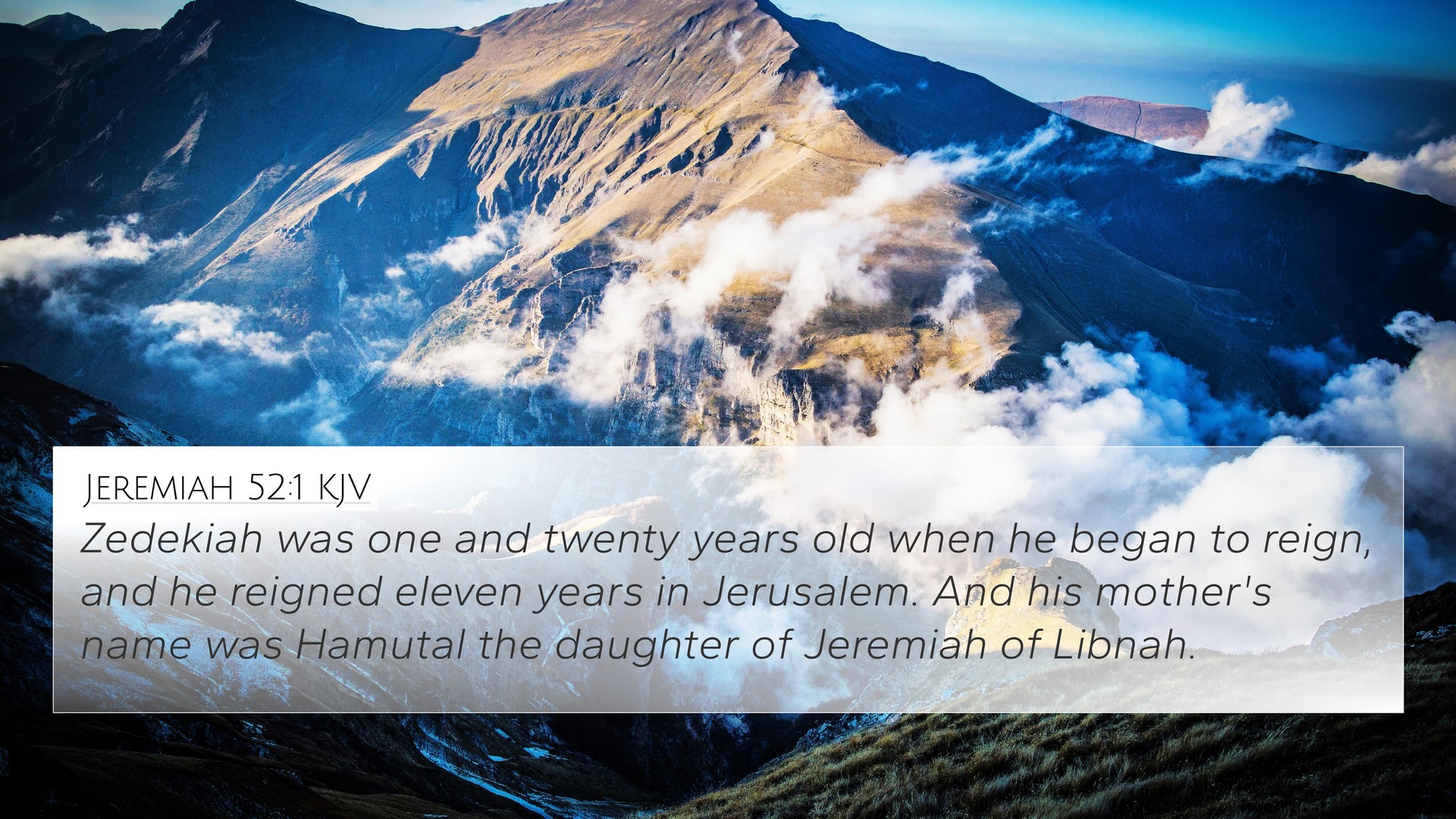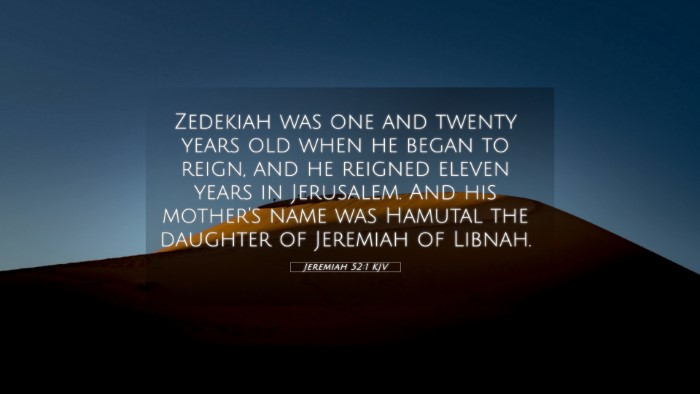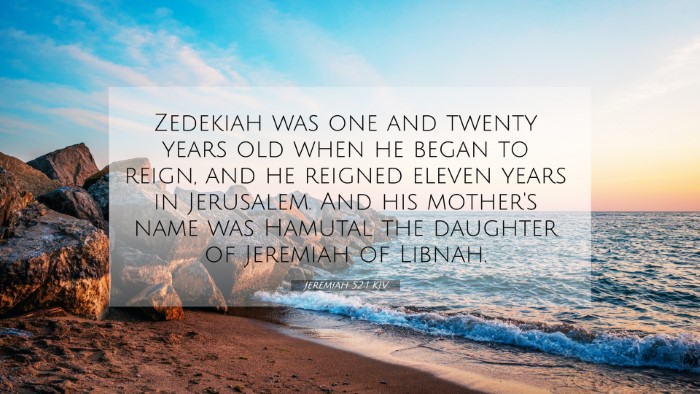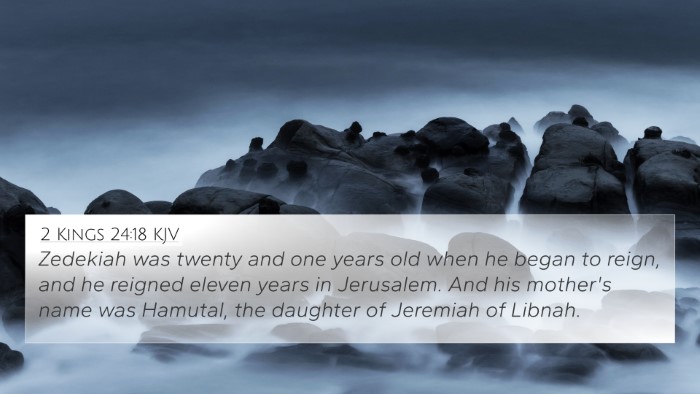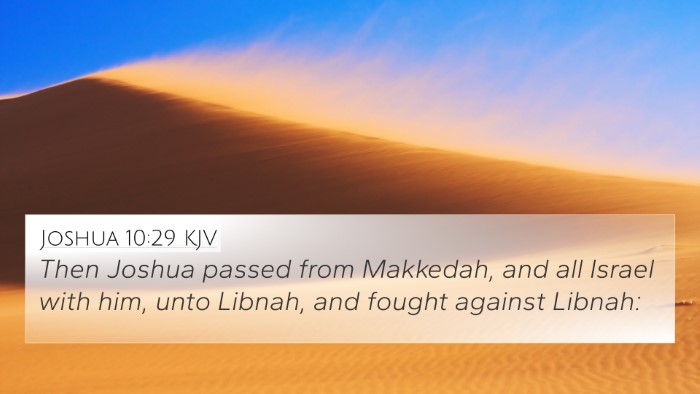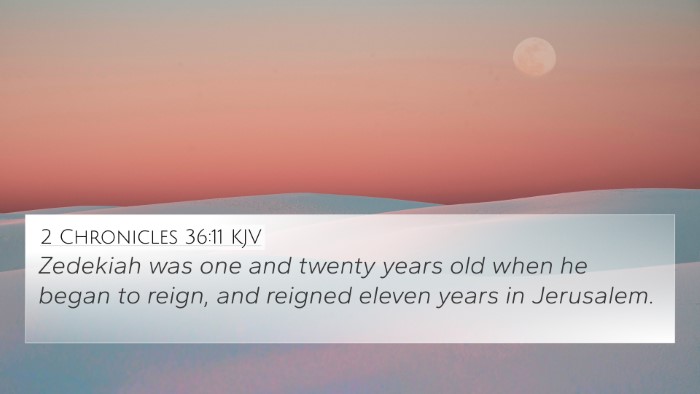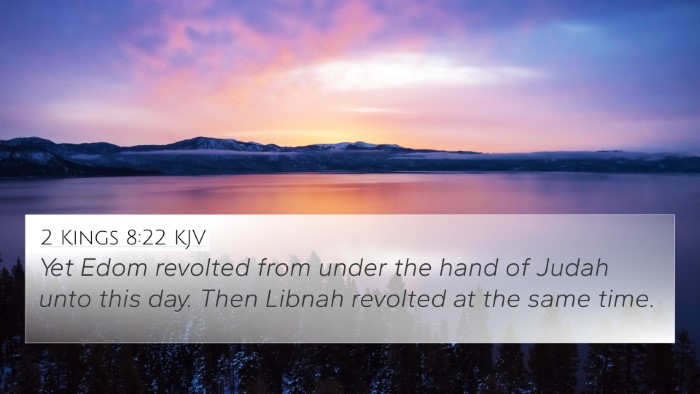Understanding Jeremiah 52:1
Jeremiah 52:1 states: “Zedekiah was one and twenty years old when he began to reign, and he reigned eleven years in Jerusalem. And his mother's name was Hamutal the daughter of Jeremiah of Libnah.” This verse introduces King Zedekiah, the last king of Judah, emphasizing his age and maternal lineage as key details in the historical narrative of Judah's final days.
Contextual Significance
The significance of this verse lies in its historical context. Zedekiah inherited a tumultuous situation in Judah, grappling with internal strife and the external threat from Babylon. Understanding Zedekiah's reign is essential in comprehending the broader themes of Judah’s apostasy, the prophetic warning given through Jeremiah, and the eventual destruction that followed.
Insights from Public Domain Commentaries
This verse has been examined from various biblical commentaries:
- Matthew Henry: Highlights Zedekiah’s inadequate leadership and the consequences of his poor decisions, noting that his age symbolizes a lack of experience. Henry emphasizes the importance of divine sovereignty in the affairs of nations.
- Albert Barnes: Suggests that Zedekiah's reign represents the culmination of Judah's rebellion against God and the prophetic warnings. He makes parallels with other kings, indicating that Zedekiah's actions were detrimental to the people.
- Adam Clarke: Discusses the significance of Zedekiah’s mother, Hamutal, who represents the continuity of Judah’s royal lineage. Clarke also notes the political and spiritual turmoil during Zedekiah's reign, connecting it to previous prophetic messages.
Thematic Connections
This verse not only speaks about Zedekiah’s reign but also lays the groundwork for understanding the themes of leadership, legacy, and judgment throughout the Bible. It sets the stage for subsequent events leading to the Babylonian exile, showcasing the dire consequences of turning away from God.
Bible Verse Cross-References
Jeremiah 52:1 can be connected with several other verses that provide additional insight:
- 2 Kings 24:17: Discusses Zedekiah’s appointment as king by Nebuchadnezzar.
- Jeremiah 37:1: Mentions Zedekiah seeking counsel from Jeremiah.
- Zedekiah 38:5: Reflects Zedekiah's conflicted relationship with the prophets.
- 2 Chronicles 36:11-14: Provides a summary of Zedekiah’s actions and his rebellion against God.
- Ezekiel 17:13: Refers to the allegorical significance of Zedekiah in prophetic literature.
- Matthew 1:12: Indicates the genealogical link to the lineage of David which Zedekiah represents.
- Lamentations 2:9: Highlights the despair of Jerusalem during Zedekiah's reign.
Inter-Biblical Dialogue
Cross-referencing these texts reveals a deeper understanding of the spiritual and historical dynamics at play. For instance, the mention of God’s judgment in Lamentations echoes the consequences of Zedekiah's reign, suggesting a continuous narrative of divine response to human actions.
Comparative Bible Verse Analysis
Comparative studies can explore the contrast between the faithfulness of earlier kings, such as Josiah, and the failure of Zedekiah. Such analyses can highlight the decline of leadership in Judah and its impact on the Israelite community.
Tools for Bible Cross-Referencing
Engaging with tools for Bible cross-referencing can enhance understanding, enabling readers to grasp the intricate web of scriptural connections. Utilizing a Bible concordance or a cross-reference Bible study guide can aid those looking to delve deeper into the thematic links and historical context surrounding Zedekiah and Jeremiah.
Conclusion
Jeremiah 52:1 serves as a critical entry point into understanding the last days of Judah and the importance of leadership in fulfilling God's purpose. Through the lens of public domain commentaries and connections with other scriptures, readers gain a comprehensive view that prompts reflection on contemporary spiritual leadership and fidelity to divine guidance.
